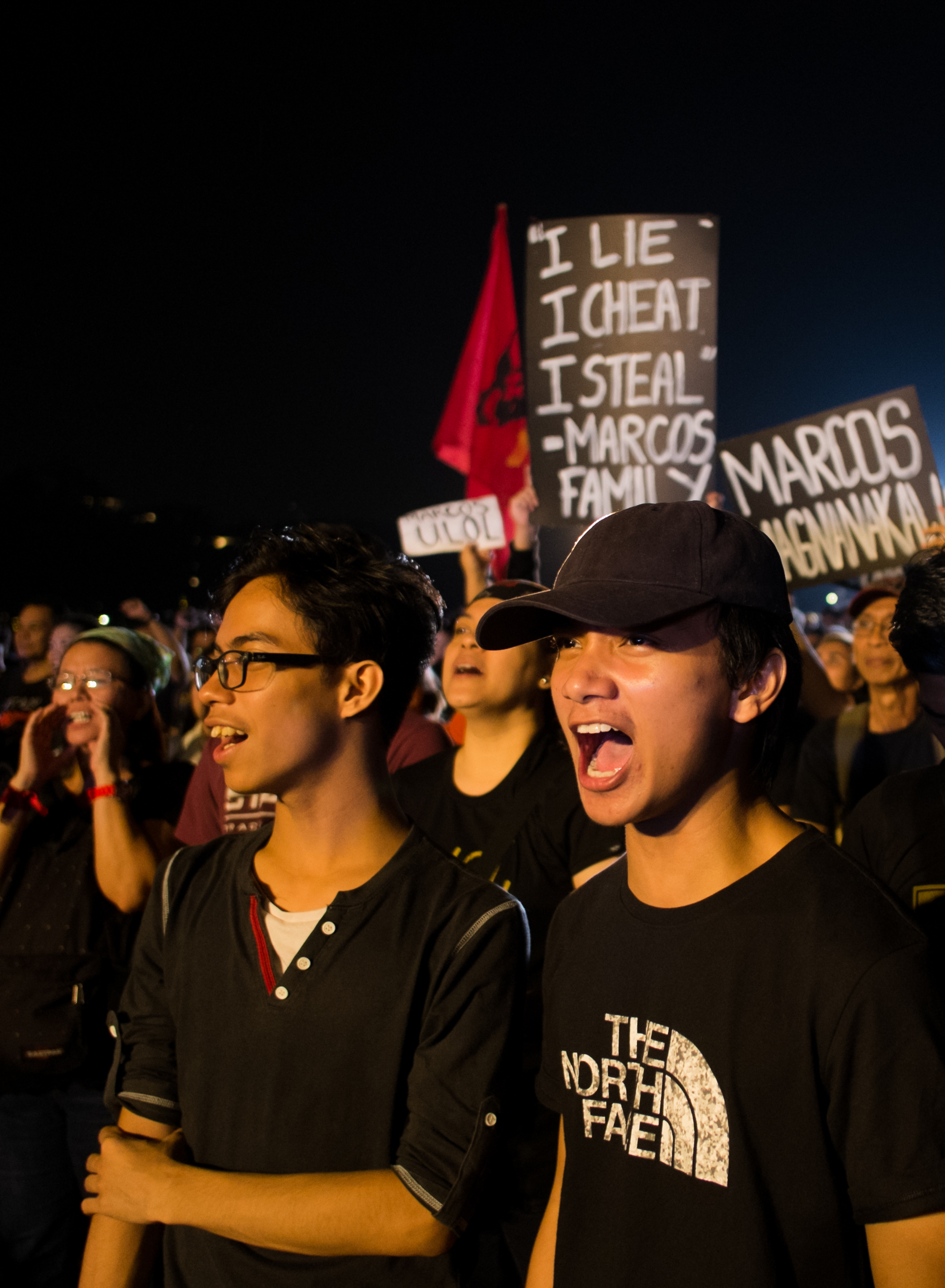Protesters have returned to the streets, but they seem choosy with their issues and targets, and careful not to touch President Duterte.
These days they have seized upon the hero's burial given the dictator Ferdinand Marcos. Duterte himself championed it and now, after the burial, continues to defend it, but it's the Marcoses who are getting it from the protesters, almost exclusively, for brazenness and insensitivity.
On the other hand, more fundamental issues – issues arising directly from Duterte’s own actions and decisions and involving assaults on human rights, sovereignty, and freedom – have incited no significant protests. There is, for instance, the runaway campaign that has left more than 4,000 drug dealers and users killed in just four months, facts that alone constitute a circumstance enough to raise reasonable suspicions of summary justice, if not moral outrage.
There, too, is the official tendency, if not policy, to virtually surrender to rival-claimant China control over Scarborough Shoal, a strategic passageway for trade and a rich fishing ground that an international arbitral court has declared part of Philippine territory. All this, even more worrisomely, falls in with a diplomatic shift toward China and Russia and away from the United States and the rest of the West.
Now Duterte warns he will suspend the writ of habeas corpus to allow for arrests without warrants if the twin scourges of drug and southern terrorism continue, a threat that looks curious in the face of reports that headway has in fact been made in both efforts. A long-wanted principal suspect in the drug trade has been captured and begun to tell about a drug network involving police and officials. In the meantime, seven suspects have been arrested in the bombing that killed 14 people in Davao City in September.

The arrests came under a state of lawlessness Duterte declared to give himself the power to deploy policemen and soldiers anywhere in the country. The emergency remains in effect. A suspension of the writ of habeas corpus is only a further, and more suppressive, measure, the exact same one that Marcos imposed to preface his martial law.
What's going for Duterte?
But for all that dreadful familiarity, Duterte, with his own tendency toward authoritarianism – he ruled Davao as an autocratic mayor for more than two decades – is even less criticized than a dead dictator.
I see three reasons why.
One, Duterte's popularity and volatility inspire some trepidation.
Two, the generation who mounted the million-people street vigil that drove the Marcoses out of power in 1986 have, by its own default, allowed the Marcoses back from foreign exile, and back as well in power; now, it wants to redeem itself, fixated on Marcos.
The third reason would seem the most plausible, given its resonance even with citizens too young to have been born in the Marcos years; they in fact make up the bulk of the protesters. In its very ludicrousness, Marcos’s case lends itself to a simple narrative: a dictator who presided over a regime of torture, murder, and plunder is buried a hero. Duterte's case, on the other hand, is a strange and complex one; in fact he is himself a strange and complex one.
Moreover, Duterte has managed to put together such a broad-based coalition it’s inconceivable that no protest of any significance could happen without co-opted, therefore inhibited, sectors. A prime example is the Left, which has comrades in the President’s innermost circle, among them the Cabinet secretary himself.
The mainstream Left was at the forefront of the Black Friday demonstration at the Luneta Park. It was the first organized multi-sectoral anti-Marcos demonstration after the surprise burial the Friday before; pockets of street protests, pouring out of campuses, had been staged since.
Surveying Black Friday at the park, I saw no placard, no streamer, no outward sign of protest connecting Duterte to Marcos or to his burial.
A leftist leader sounded rather apologetic. “But this is just the beginning,” he said. He saw the protests snowballing, sustaining themselves, and becoming “an inescapable test” for the Left, especially in regard to its place in the Duterte coalition.
It is, indeed, the unlikeliest coalition: it collects leftists in one corner, dynasty leaders and other political patrons in another corner and, in a corner all their own, the Marcoses.
It would seem the sort of deal doomed from the start. For now it holds, but for how long can the dealmaker keep it together? – Rappler.com